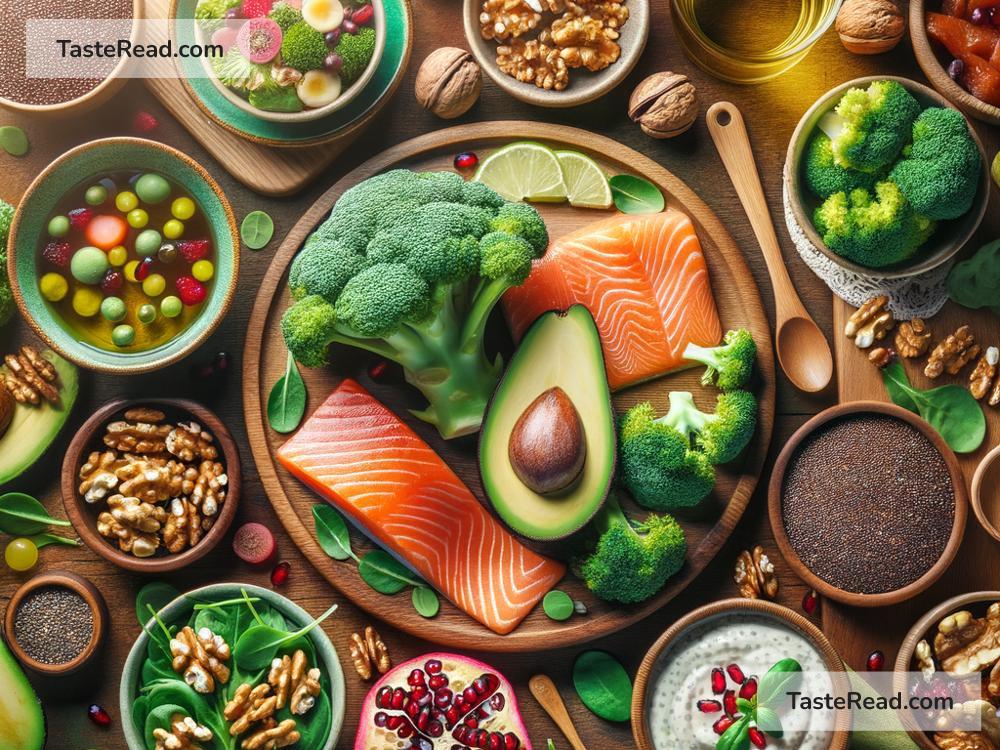Eating for Hormonal Balance: Foods That Help Keep You in Harmony
Hormones might be small, but they have a big impact on how your body functions! These chemical messengers control several important processes in your body, from sleep and metabolism to mood, energy levels, and reproduction. When your hormones are balanced, you feel good, both physically and emotionally. On the other hand, an imbalance can lead to fatigue, weight gain, acne, mood swings, and other issues.
Thankfully, what you eat can have a powerful effect on your hormonal health. By making smart food choices, you can help your body maintain balance naturally. Let’s explore some simple and nutritious foods that promote hormonal well-being.
1. Healthy Fats Help Hormone Production
Hormones, like estrogen and testosterone, are made from fats. That’s why consuming the right type of fats is crucial for hormonal health. Focus on eating healthy fats that support hormone production.
- Avocados: Rich in monounsaturated fats, avocados are great for balancing cortisol (the stress hormone).
- Nuts and Seeds: Almonds, walnuts, flax seeds, and chia seeds contain omega-3s, which help reduce inflammation and regulate hormones involved in mood.
- Olive Oil: Extra virgin olive oil promotes heart health and provides essential fats for hormonal synthesis.
Avoid processed and hydrogenated fats, as these can throw your hormones out of whack.
2. Protein for Chemical Messengers
Protein is vital for producing amino acids, which are building blocks for your hormones. Eating enough protein helps regulate hunger hormones like ghrelin and leptin, keeping your appetite in check.
- Eggs: Contain protein and essential nutrients that stabilize hormones related to energy and mood.
- Fish: Salmon and mackerel are rich in omega-3s and protein, which support brain function and hormonal balance.
- Quinoa: A plant-based protein source that is also packed with magnesium, which reduces stress-related hormonal imbalances.
Remember to opt for high-quality protein sources. Limit processed meats, which can disrupt hormonal health.
3. Fiber for Detox and Digestion
Your liver plays an essential role in processing hormones like estrogen. If estrogen builds up in your body, it can lead to issues like PMS and weight gain. Fiber helps your liver eliminate excess hormones and keeps things moving in your digestive system.
- Cruciferous vegetables: Broccoli, cauliflower, and kale contain compounds that help balance estrogen levels.
- Whole grains: Oats, brown rice, and barley provide natural fiber to promote gut health and hormone detox.
- Apples: High in fiber and antioxidants, they support a healthy metabolism and keep your blood sugar steady.
Eating fiber-rich foods regularly helps ensure that your body eliminates waste efficiently, leaving your hormones in top condition.
4. Leafy Greens for Stress Hormones
Stress can wreak havoc on your hormonal balance. In response to stress, your body releases cortisol, which, when elevated for long periods, can lead to fatigue, weight gain, and sleep issues. Leafy greens like spinach, kale, and Swiss chard are packed with nutrients like magnesium and vitamin C that reduce stress hormones.
- Spinach: Contains magnesium to regulate cortisol and support relaxation.
- Kale: Loaded with iron, it helps maintain energy levels and balance thyroid hormones.
- Arugula: A bitter green rich in antioxidants, which reduce inflammation caused by oxidative stress.
Adding greens to your meals is an easy way to support your endocrine (hormone) system.
5. Gut-Friendly Foods for Hormone Harmony
Your gut health and hormonal health are closely linked. When your gut is in good shape, it can help regulate hormone production and digestion. Eating probiotic-rich foods supports a healthy gut microbiome, which in turn keeps your hormones balanced.
- Yogurt: A natural source of probiotics that supports gut health and improves digestion.
- Fermented foods: Sauerkraut, kimchi, and miso contain live bacteria that benefit the gut and support hormone detoxification.
- Bone broth: Packed with collagen and amino acids, bone broth helps heal the gut lining and reduce inflammation.
Taking care of your gut is key to keeping your hormones calm and happy.
6. Antioxidants to Fight Inflammation
Inflammation in the body can disrupt hormonal balance, leading to issues like insulin resistance and fatigue. Foods rich in antioxidants can reduce inflammation and protect hormone-producing tissues.
- Berries: Blueberries, strawberries, and raspberries are full of antioxidants that support brain and hormonal health.
- Turmeric: Contains curcumin, a powerful anti-inflammatory that supports hormonal balance.
- Dark Chocolate: (Yes, chocolate!) Choose one with high cacao content for its antioxidants, but eat it in moderation.
By eating these antioxidant-rich foods, you help your body manage stress and keep inflammation at bay.
7. Hydration and Hormonal Balance
Although it’s not a food, water plays an essential role in your hormonal health. Dehydration can cause stress in the body, leading to elevated cortisol levels. Additionally, water helps flush toxins and excess hormones out of your system.
To keep your hormones in check, drink plenty of water throughout the day. Try herbal teas like chamomile or peppermint, which also support digestion and relaxation.
Final Thoughts: Balance Starts from Within
Your hormones are sensitive to what you eat, how much you sleep, and even how you manage stress. Incorporating nutrient-rich, hormone-friendly foods into your diet is a simple way to support your body’s natural balance. Eat lots of healthy fats, proteins, fiber, greens, and antioxidants, and drink enough water to keep your system functioning optimally.
Along with smart food choices, pay attention to other lifestyle factors like exercise, sleep, and stress management. A balanced approach to your health can do wonders for your hormones—and for how you feel every day.


